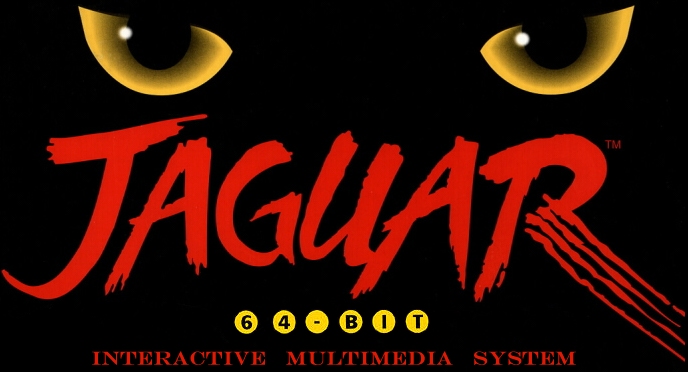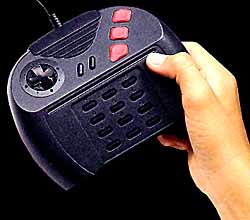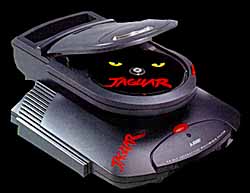
Oh yes, the Atari Jaguar.
The worlds FIRST 64-Bit video game system! This was a big step for Atari. Now
here's a system that had some potential...
The Jaguar was released in November of 1993 after three long years of
research, and being manufactured by IBM. Initially marketed in the New York
City and San Francisco Bay areas, a nationwide release had followed in the
early part 1994. When the Jaguar first debued, it sold for $249.99 - For that
price you got the Jaguar, which was packaged with one 18 Button Controller, a
Video Cable, a Power Adapter, and the CYBERMORPH game cartridge. As time went
on the Jaguar sold for $149.99 and then $99.99!!
Today you can come across ATARI's Jaguar on eBay for less than half of it's
debut price. If you're lucky enough to find one new and in it's box an asking
price of $249.99 might be worth it...

The technical specifications of the Jaguar are by far impressive... The unit had five processors which were contained in three chips.
Two of the chips (nicknamed “Tom” and “Jerry”) were proprietary designs. The third chip was a standard Motorola 68000 which was used as a coprocessor. Tom and Jerry were built using the 0.5 micron silicon process, and with proper programming all five processors could run in parallel at the same time. So what did all of this mean to the everyday gamer? In translation the Jaguar offered high-speed action, CD-quality sound, and polygon graphic processing beyond most other game consoles available at the time. The Jaguar also contained 16 megabits of fast page-mode DRAM. Game cartridges could be made up to 48 megabits, and some games contained EEPROM chips to save settings and other information.
|
|
|

|
 |
|
The Jaguar's 18 button controller looked something like a cross between a SEGA Genesis controller and a telephone's keypad. Unique and different from anything else that anyone had seen before, I am still trying to figure out where Atari was going with this one... There were also rumors at the time that Atari was going to release a virtual reality headset for the Jaguar, but due to high developing costs, the project was cancelled, and Atari reassessed their investments and focused on other ventures...
|
|
|



